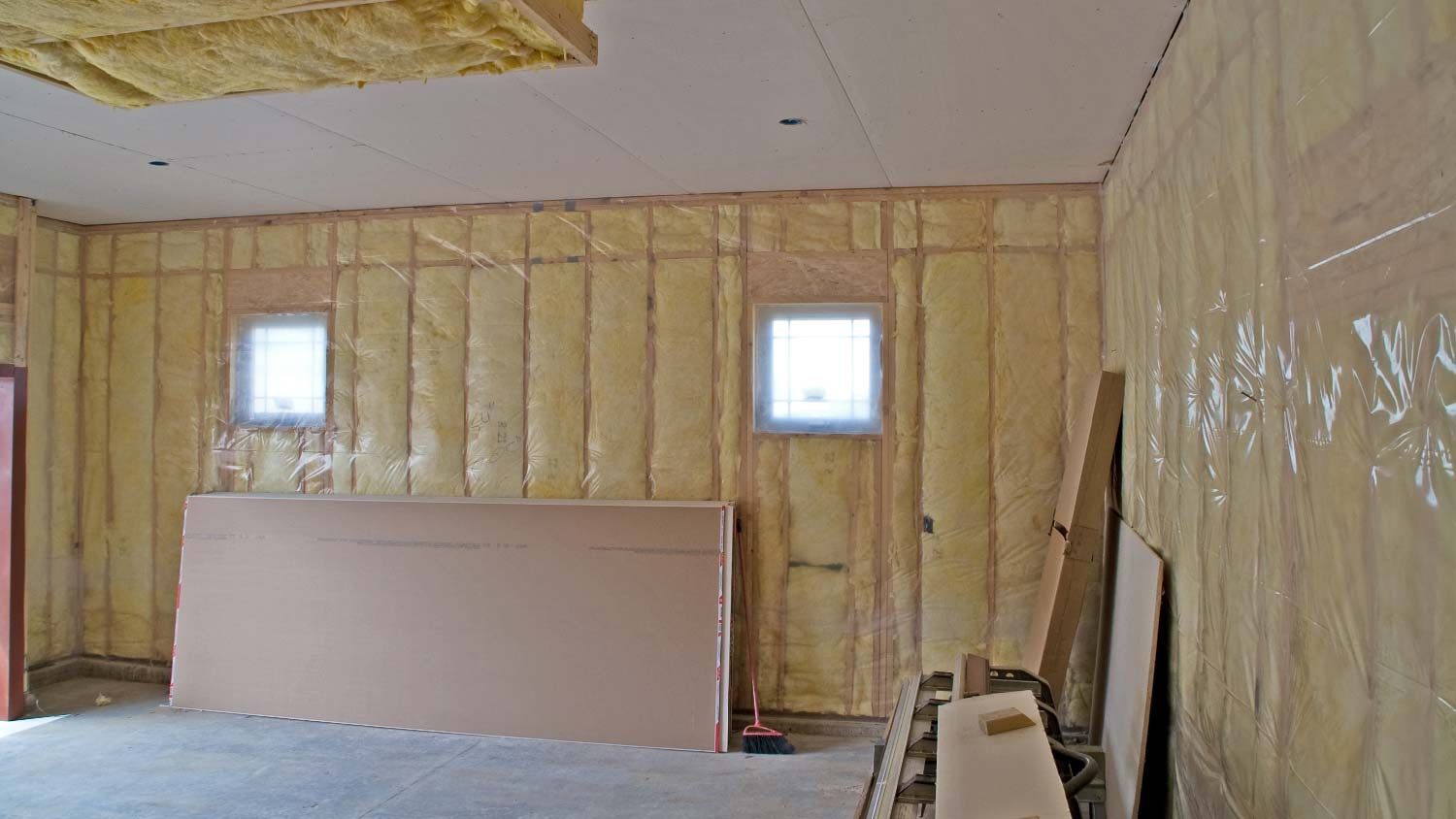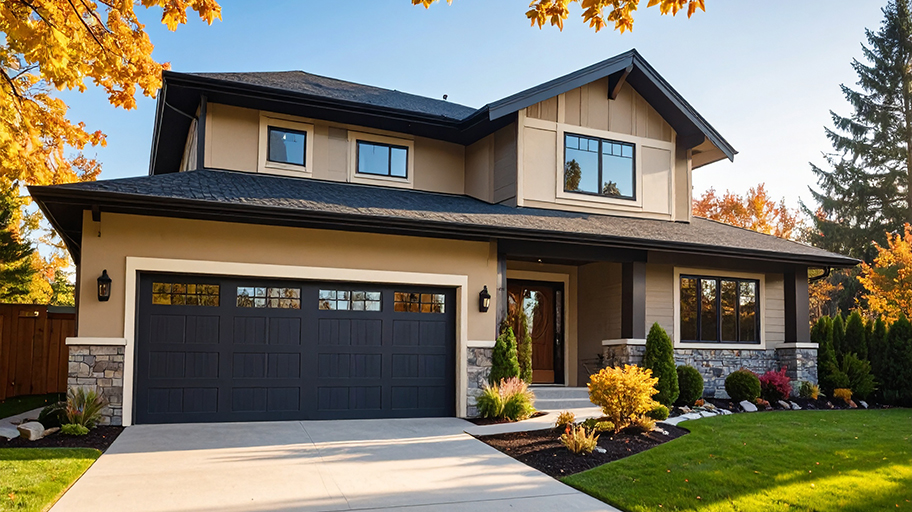A garage extension is a great way to add space for work, hobbies, and storage. Learn how much a garage extension costs so you can budget accordingly.
Pros and Cons of Insulating a Garage: Is It the Right Choice?
A protective barrier that increases versatility


Insulated garages help control temperature to increase energy efficiency.
The cost to insulate a garage averages around $4,700.
Insulation can attract pests and reduce the amount of space in your garage.
An insulated garage can reduce noise and help protect your belongings.
If you’re weighing the pros and cons of insulating your garage to make it a more comfortable space year-round, you should consider more than just the cost. Important factors like how you plan to use the space will also impact your decision. We've gathered all the benefits and drawbacks of an insulated garage to help you decide if it’s right for you.
Stop Guessing: It’s Time to Call In a Professional
When taking on this project, expect questions only a pro can answer. With our network of local pros, you'll get the job done and your questions answered—without the hassle and stress of doing it yourself.
What Is Garage Insulation?
Garage insulation primarily regulates temperature and improves energy efficiency within a garage space. The project involves adding insulation to the walls, ceiling, and sometimes the garage door to create a barrier that minimizes heat transfer between the interior and exterior.
The main goal of garage insulation is to maintain a more consistent and comfortable temperature to protect stored items and reduce energy consumption by preventing heat loss or gain. Insulation can be especially beneficial in regions with extreme weather conditions and for individuals who use their garage for various purposes, such as a workshop, home gym, or additional living space.
Pros of Insulating a Garage

Hiring a local insulation installer to insulate your garage has many potential benefits.
1. Temperature Regulation
Garage insulation helps maintain a more consistent temperature inside the garage. While this benefit is great for using garages as a vehicle shelter, it makes the space more versatile. Temperature control makes garages more comfortable for various uses, such as a workshop, home gym, or storage space.
2. Energy Efficiency
Insulating the garage reduces air transfer, keeping cool or warm air inside. This process minimizes the need for excessive heating or cooling, leading to lower energy bills.
3. Condensation Control
Condensation can cause moisture-related issues such as mold, mildew, and rust. Insulation helps prevent condensation by regulating temperature to reduce moisture-related risks.
4. Protects Belongings
Insulation provides a protective barrier against extreme temperatures. Items stored in the garage, such as tools, equipment, or other household products, are protected from damage caused by heat, cold, or humidity.
5. Improved Living Space
A well-insulated garage can serve as an extension of your living space. This offers an additional area for relaxation or activities without being overly affected by external weather conditions.
6. Noise Reduction
Insulation can help minimize external noises and create a quieter environment inside the garage. It also reduces disturbances to the rest of the household, making the garage a great space for a workshop or hobby space.
7. Increased Home Value
A properly insulated garage will often add value to the overall property. Potential buyers appreciate the energy efficiency and versatility of a well-maintained space.
8. Building Code Compliant
In some regions, proper garage insulation may be a requirement to meet building codes. Using insulation ensures the structure meets certain energy efficiency standards.
Cons of Insulating a Garage
While insulating a garage can be a good choice for homeowners, there are some drawbacks to consider.
1. Cost
One of the primary challenges of garage insulation is the initial investment. Quality insulation materials and professional installation can be expensive, potentially discouraging some homeowners. It's also worth noting that insulating a garage can be challenging and requires professional installation.
2. Limited Return on Investment
Depending on the region and your specific needs, the ROI for garage insulation may not be as immediate or substantial as other home improvement projects. While it is a feature potential buyers will appreciate, the increased value may not equate to the installation cost.
3. Space Constraints
Insulating the garage can reduce the available space, particularly if thick insulation materials are used. This might be a concern for homeowners with smaller garages or those requiring every inch of storage space.
4. Moisture Issues
In some cases, improper insulation installation can trap moisture within the walls, leading to potential mold or mildew problems. It's crucial to choose insulation materials with moisture-resistant properties and ensure proper ventilation.
5. Potential Pest Issues
Insulated spaces can sometimes attract pests seeking shelter. Proper sealing and additional pest control measures may be necessary to prevent infestations.
6. Not Always Necessary
In some climates or for garages that aren't frequently used, insulation may not be a worthwhile investment. Homeowners in milder climates may find little benefit in terms of energy savings.
Is Insulating a Garage Right For You?

When considering if insulating a garage is the right choice for you, the first consideration is the climate in your region. If you experience extreme temperatures, whether hot or cold, insulation may be critical to maintaining a comfortable and usable space.
You should also evaluate how you use the garage. Will it be a workshop, home gym, or additional living space? Insulation will help create a comfortable environment in which to work (or play) for long periods.
Budgetary concerns are an important factor to consider. The cost to insulate a garage depends on the garage size and type of insulation. Insulating a garage costs between $1,900 and $7,700, with an average price of $4,700. Budget-conscious homeowners can reduce the cost by opting only to insulate the garage door, as an insulated garage door costs between $700 and $2,300.
The homeowners guide to garage services
From average costs to expert advice, get all the answers you need to get your job done.

Want to revamp your garage and add some utility? Use this garage remodel cost guide to see what your project will cost before you get started.

Considering enclosing your carport to turn it into a more protective garage? Find out about the cost to convert a carport into a garage in this handy guide.

Thinking about repurposing your garage? Use these garage conversion ideas to transform your area and get the most use and added home value possible.

If you need to build extra living space at your home, this guide on how to convert a garage into a bedroom shows you all the steps.

Discover the perfect dimensions for your 2-car garage to maximize its potential, allowing for car storage to extra space for laundry or hobbies.

